11 Dystopian Movies That Feel Uncomfortably Real Today
Dystopian films often explore unsettling futures shaped by environmental collapse, technological overreach, and societal division. These movies tap into our deepest fears, offering a glimpse of what could happen if current global challenges are left unchecked. With themes that reflect the growing concerns about government control, climate change, and loss of individual autonomy, these films feel more relevant than ever. As the real world grapples with similar issues, the lines between fiction and reality begin to blur.
This post may contain affiliate links, which helps keep this content free. Please read our disclosure for more info.
Children of Men (2006)
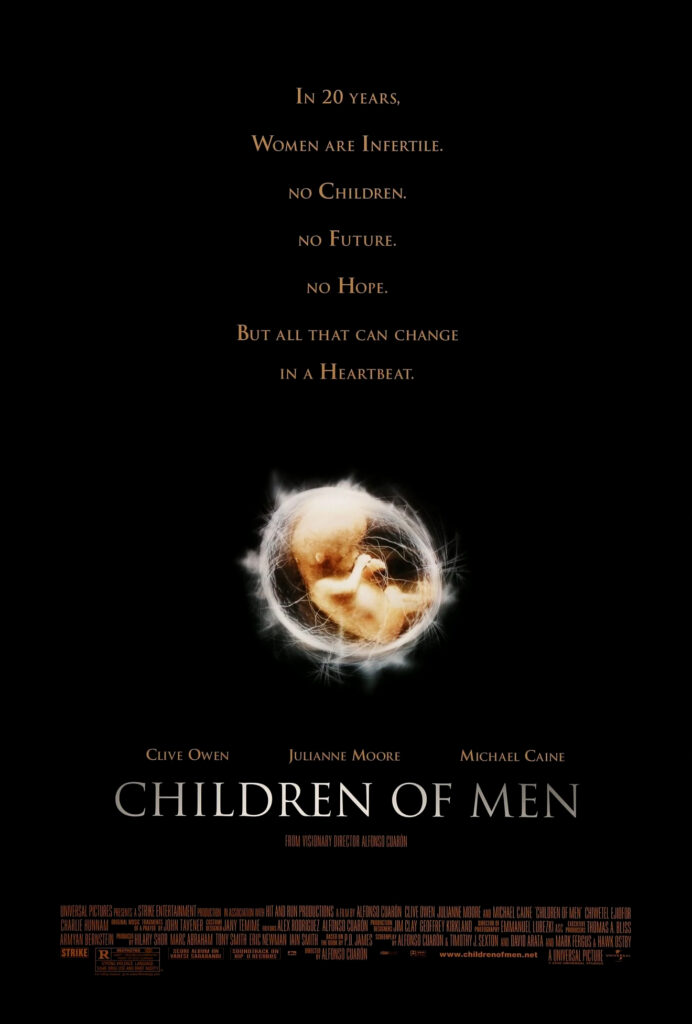
“Children of Men” presents a world in 2027 where humans have become infertile, and society is on the brink of collapse. The government enforces strict control over the population, while refugees are confined to brutal, overcrowded camps. The film explores the fear and despair of a world where the future is uncertain, and hope is lost. The story’s depiction of heavily militarized borders, surveillance states, and authoritarian control resonates with today’s political climate, where global migration crises and government overreach are major concerns. As the environment continues to deteriorate and resources grow scarcer, the bleak world of “Children of Men” feels eerily prophetic.
The film also touches on themes of environmental collapse, with cities falling into disrepair, and nature reclaiming the spaces once inhabited by humans. This reflects contemporary fears about the consequences of climate change, pollution, and urban decay. The notion of a future with no children to nurture the world or push society forward highlights the existential crisis humanity might face if current environmental and political trends continue. In a time when rising nationalism, environmental degradation, and diminishing hope for future generations are real-world challenges, the relevance of “Children of Men” grows stronger.
Blade Runner 2049 (2017)
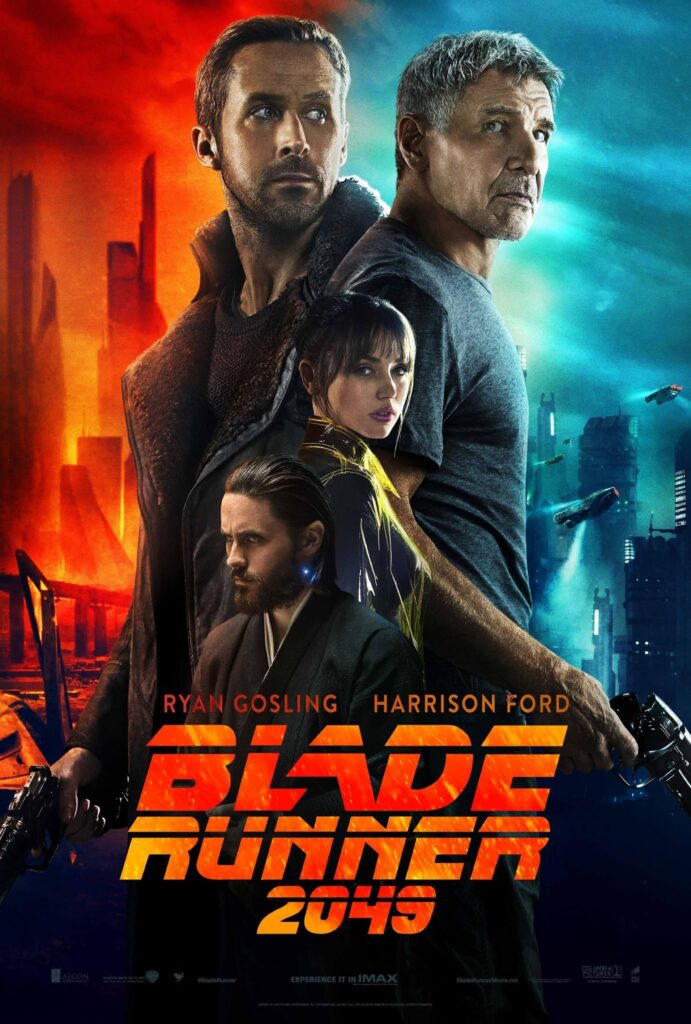
“Blade Runner 2049” delves into a future where environmental destruction has left Earth uninhabitable, and a powerful corporation controls much of the world’s resources. The film presents a dystopian vision where replicants, human-like robots, are created to serve, and the line between human and artificial intelligence is increasingly blurred. The empty, polluted landscapes of the film mirror concerns about the degradation of the environment, while the rapid development of artificial intelligence raises questions about human autonomy and technological overreach. As corporate influence expands and environmental resources shrink, the world of “Blade Runner 2049” eerily resembles the direction that global inequality and unchecked technological advancement may lead.
The film also explores the alienation and isolation that come with living in such a world, as individuals grapple with their identities in a society increasingly divided by class and technology. In an age where corporate monopolies are gaining more control over data and technology, and artificial intelligence is on the rise, the concerns raised by “Blade Runner 2049” about surveillance, identity, and the commodification of life are all too real. The film’s haunting depiction of a world with limited resources, deep social divides, and the erosion of personal identity feels like a cautionary tale about the future that is already unfolding in parts of the world today.
Gattaca (1997)
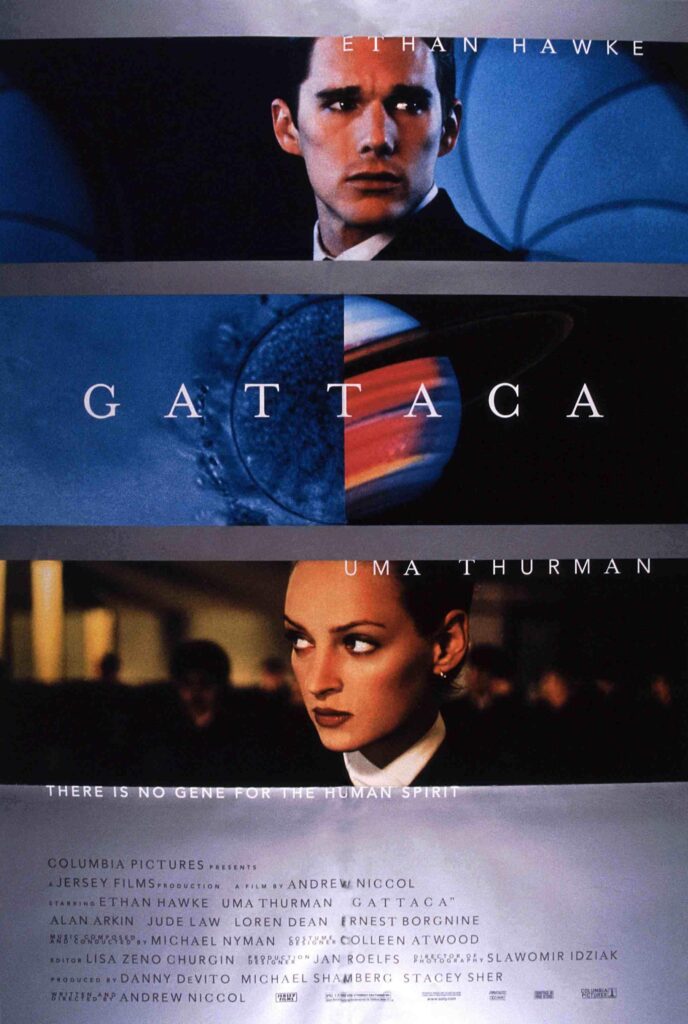
“Gattaca” is set in a dystopian society where genetic engineering determines the social status and future potential of every individual. People are categorized as “valid” or “invalid” based on their genetic makeup, and those deemed genetically inferior are relegated to menial jobs. The protagonist, born without the genetic enhancements deemed desirable, fights to overcome the societal limitations placed on him. This theme of genetic determinism is alarmingly relevant today as gene editing technologies, such as CRISPR, raise ethical questions about the future of genetic manipulation and the possibility of a genetically engineered elite. In an age where personal DNA is increasingly accessible and used for both medical and commercial purposes, the concept of a “genetically perfect” society becomes a tangible concern.
The film also touches on the loss of individuality in a society that reduces people to their genetic codes. As surveillance and biometric technology become more integrated into daily life, the fear of a future where every aspect of human existence is dictated by genetics, social class, or data profiling is heightened. “Gattaca” explores the value of human spirit and determination in the face of a society that prioritizes efficiency and perfection over individuality. As we grapple with issues like genetic privacy, discrimination based on genetics, and the ethical implications of gene editing, the story of “Gattaca” becomes a haunting reflection of potential future realities.
The Hunger Games (2012)
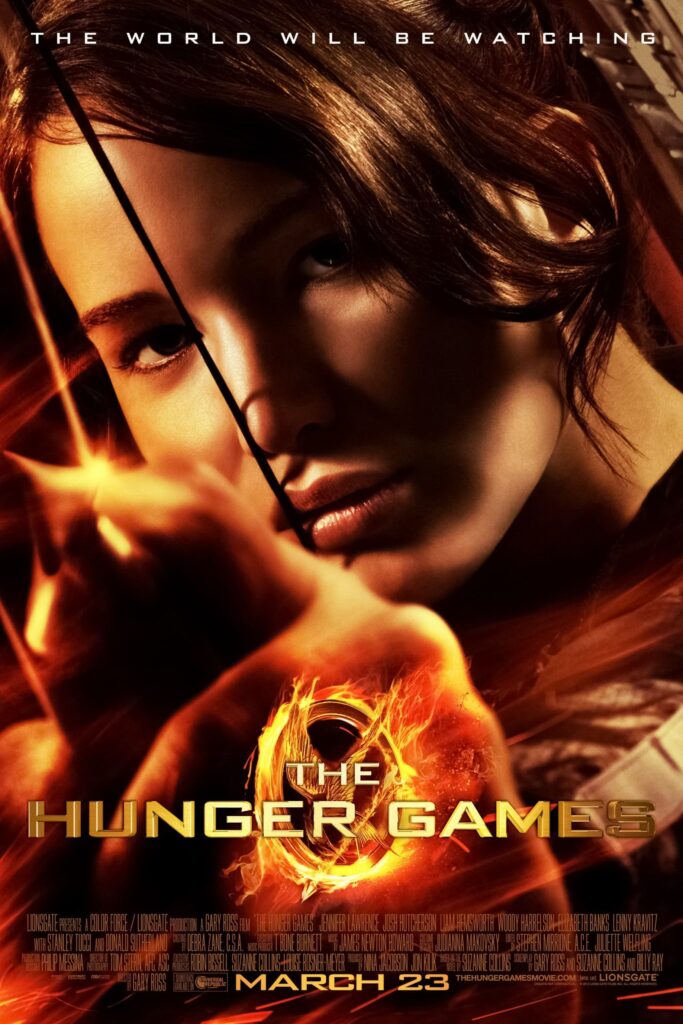
“The Hunger Games” portrays a society deeply divided by class, with a powerful, elitist capital exploiting the districts for resources. Each year, the government forces the districts to send children to fight in a deadly televised competition, showcasing the horrific lengths to which the ruling class will go to maintain control. The film’s depiction of this spectacle-based oppression highlights how entertainment can be used to pacify the masses and distract from the real inequalities in society. In today’s world, where inequality is a growing issue and reality TV often blurs the lines between entertainment and exploitation, “The Hunger Games” feels more relevant than ever. The idea of a media-driven society that encourages consumption of violence and entertainment while keeping people divided is a concern that resonates with our current social climate.
The film also delves into the impact of government control on both individual and collective freedoms. With its portrayal of surveillance, suppression of dissent, and the manipulation of the population, “The Hunger Games” is a powerful commentary on the dangers of unchecked government power. In a time when surveillance technologies, censorship, and state-sponsored media influence are becoming more common, the film’s themes about the cost of control and division feel strikingly familiar. As social and economic divisions grow and authoritarian ideologies gain traction in various parts of the world, “The Hunger Games” serves as a stark reminder of the potential consequences of these trends.
Mad Max: Fury Road (2015)
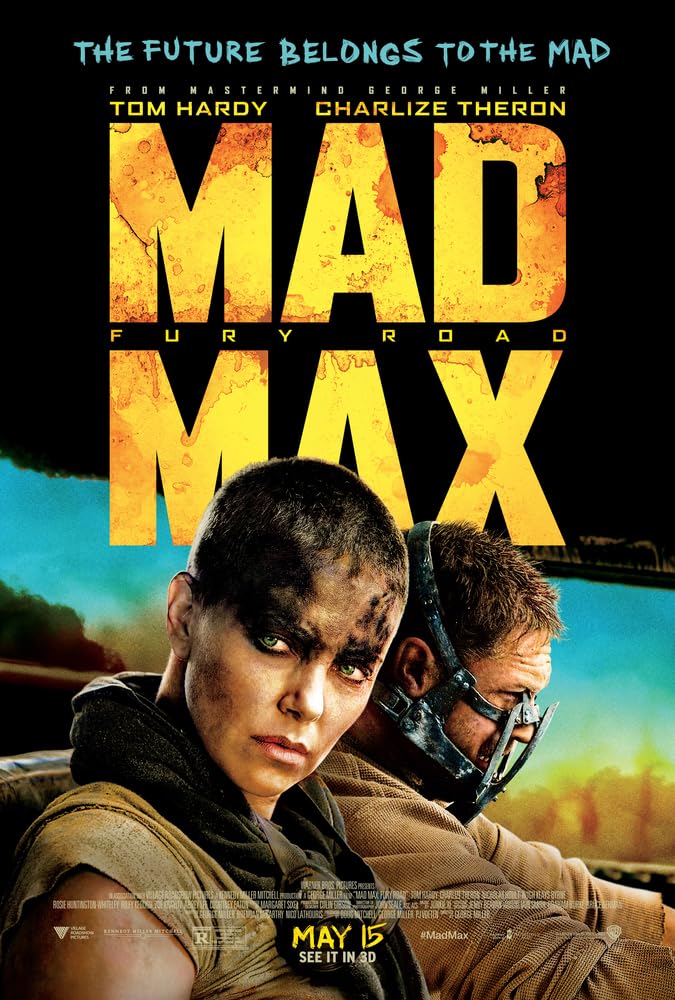
Set in a world ravaged by environmental collapse, “Mad Max: Fury Road” presents a brutal, lawless society where water, fuel, and food have become scarce, and only the strongest survive. The film’s post-apocalyptic world is a terrifying vision of what could happen if humanity continues down the path of environmental destruction, overconsumption, and warfare. The resource wars, environmental degradation, and authoritarian rulers in the film reflect the very real global concerns we face today. As climate change accelerates, natural resources become increasingly contested, and geopolitical tensions over resources intensify, the world of “Mad Max: Fury Road” feels less like fantasy and more like a possible future.
The film also explores the themes of female empowerment and resistance against oppressive regimes, as the protagonist, Furiosa, leads a rebellion against a tyrannical warlord. This aspect of the film speaks to the rising feminist movements around the world and the ongoing struggles for gender equality. “Mad Max: Fury Road” underscores the need for solidarity and action in the face of oppressive systems, whether they are based on gender, class, or environmental exploitation. In a world increasingly divided by resource inequality, climate collapse, and power struggles, the film’s message about survival, resistance, and hope resonates strongly with today’s global challenges.
The Matrix (1999)
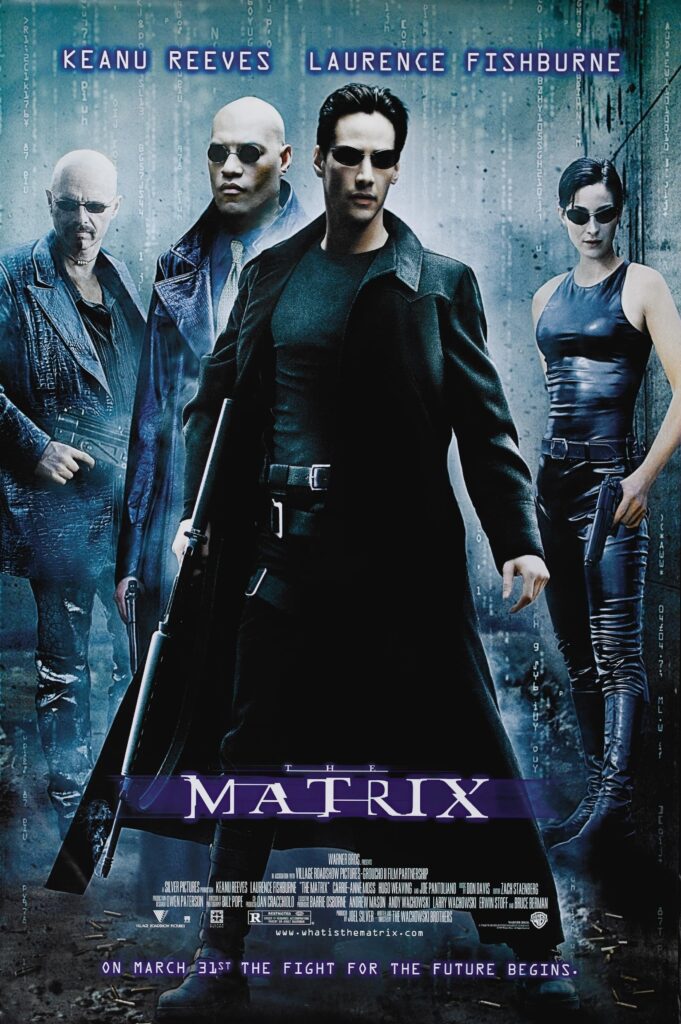
“The Matrix” imagines a future where humans unknowingly live in a simulated reality, controlled by artificial intelligence. The film explores themes of reality manipulation, control, and the consequences of unchecked technological development. In a time when artificial intelligence is advancing rapidly, and concerns about surveillance and data privacy grow, the film’s vision of a dystopian world controlled by machines feels eerily prescient. The notion of human beings trapped in an artificial world, unaware of the true nature of their existence, parallels growing fears about the increasing role of technology in every aspect of life, from social media algorithms to surveillance networks.
The film also raises questions about free will and the nature of reality, with the protagonist, Neo, challenging the system that controls his life. This echoes modern concerns about the erosion of personal autonomy in the face of powerful technological and governmental systems. As we see more debates about privacy, government surveillance, and the power of big tech companies, “The Matrix” serves as a cautionary tale about the dangers of losing control over technology. The film’s exploration of human resistance to a system that manipulates and controls feels highly relevant as we continue to grapple with the ethical implications of AI and technology’s growing influence.
Snowpiercer (2013)
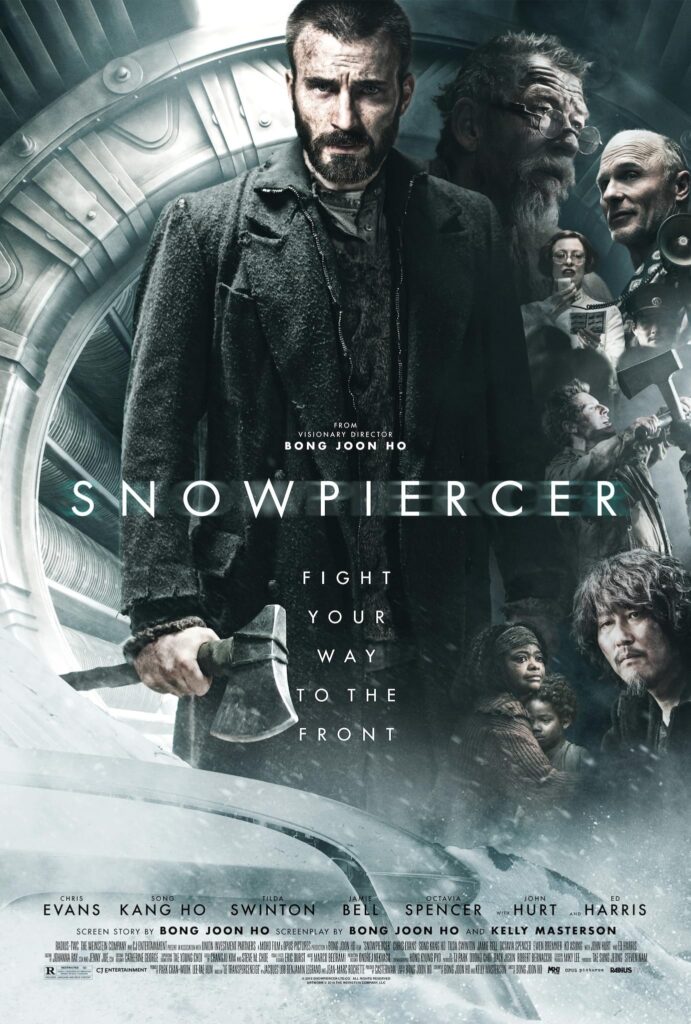
Set in a future where the Earth has been plunged into a new ice age, “Snowpiercer” takes place entirely on a massive train carrying the last remnants of humanity. The film presents a rigid class system, where the wealthy live in luxury at the front of the train, and the poor are oppressed in squalid conditions at the back. The stark divide between these classes reflects the growing inequality seen in many societies today, where wealth is increasingly concentrated in the hands of the few while the rest are left behind. The film also delves into themes of environmental collapse and the collapse of global ecosystems, as the Earth becomes uninhabitable and humanity struggles to survive on a single train.
The film’s depiction of a rigidly controlled society and its exploration of the rebellion against an oppressive system resonate with contemporary issues about power dynamics, class disparity, and the environmental destruction caused by climate change. As global warming, economic inequality, and political polarization continue to rise, “Snowpiercer” feels all too relevant. The film reminds us of the consequences of environmental neglect and the potential for societal breakdown when resources are stretched thin and the divide between the elite and the oppressed reaches a boiling point.
The Road (2009)
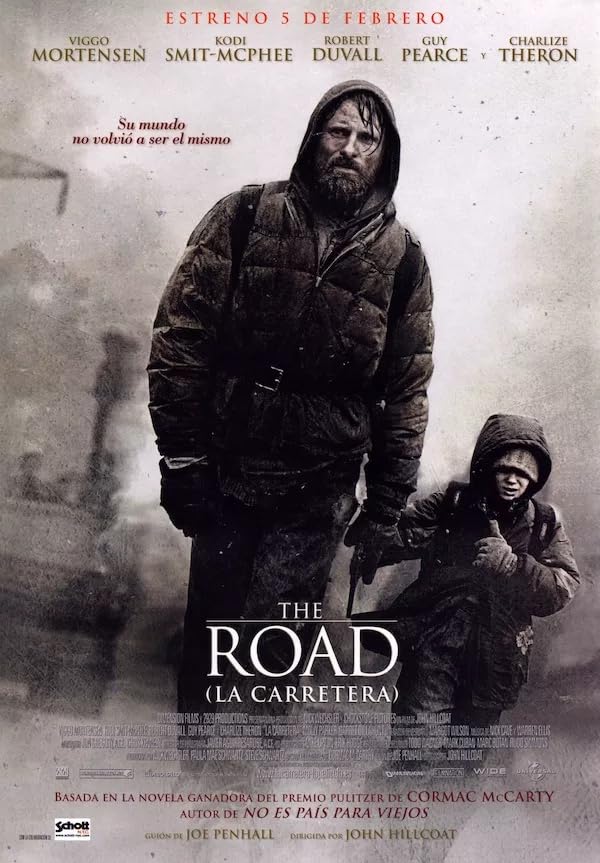
Based on Cormac McCarthy’s novel, “The Road,” portrays a father and son journeying through a post-apocalyptic world where the environment has been ravaged by an unnamed catastrophe. The Earth is barren, and survival is a daily struggle, with the remnants of humanity resorting to cannibalism to survive. The film’s portrayal of a world devoid of hope, with no clear future for the next generation, reflects the growing anxiety around climate change and environmental collapse. As ecosystems continue to degrade and natural disasters become more frequent, the desolate landscapes of “The Road” feel like an all-too-real possibility for our future.
The film also focuses on the relationship between father and son, showing how love and human connection endure even in the most extreme circumstances. In a world where survival seems impossible, the bond between family members offers a glimmer of hope. This powerful emotional core contrasts with the bleakness of the world they inhabit and underscores the importance of human connection, even when everything else has been lost. “The Road” serves as a stark reminder of the fragility of life on Earth and the importance of protecting the environment for future generations.
V for Vendetta (2005)
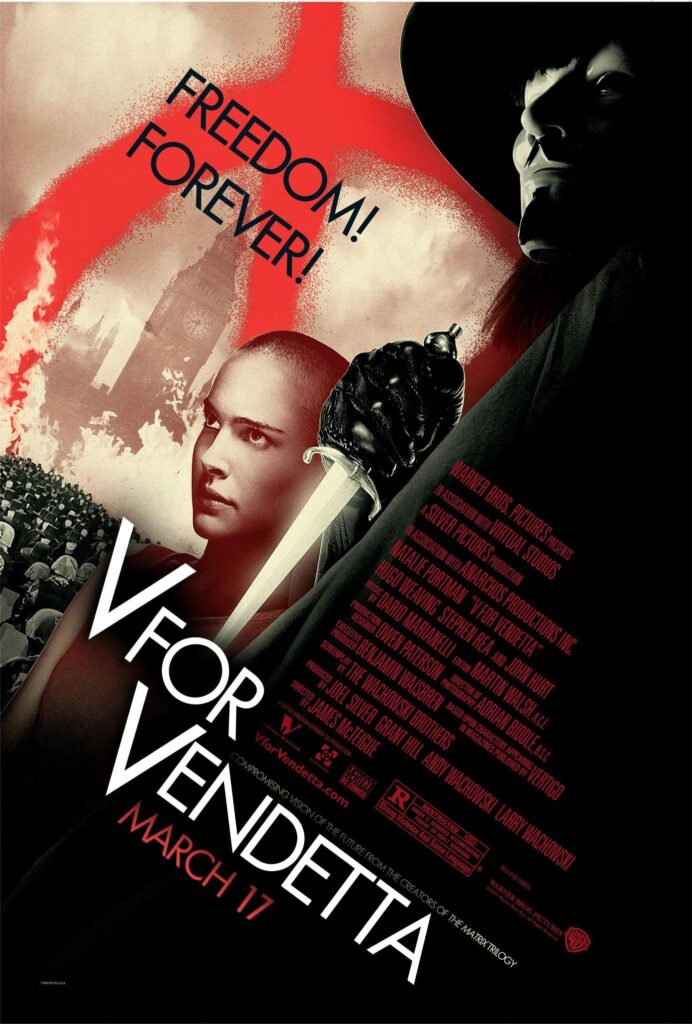
Set in a dystopian future where a totalitarian regime has taken control of the United Kingdom, “V for Vendetta” explores themes of government surveillance, personal freedom, and the suppression of dissent. The film follows a masked revolutionary, V, who seeks to overthrow the oppressive government through acts of terror and resistance. The themes of government control and surveillance resonate today, as the world grapples with growing concerns about privacy, data security, and the overreach of government powers. In an era where surveillance technologies are becoming more pervasive and authoritarian movements are gaining ground in various countries, “V for Vendetta” serves as a chilling reminder of what could happen if individual freedoms are surrendered in the name of security.
The film also explores the power of symbolism and mass resistance, with the iconic Guy Fawkes mask becoming a symbol of rebellion against oppressive systems. The film’s message about the dangers of censorship, manipulation, and the control of information feels increasingly relevant as governments and corporations alike manipulate narratives to control public opinion. As society grapples with rising political polarization, the spread of misinformation, and the erosion of civil liberties, “V for Vendetta” serves as a powerful call to resist the forces that seek to undermine freedom and democracy.
The Handmaid’s Tale (1990)
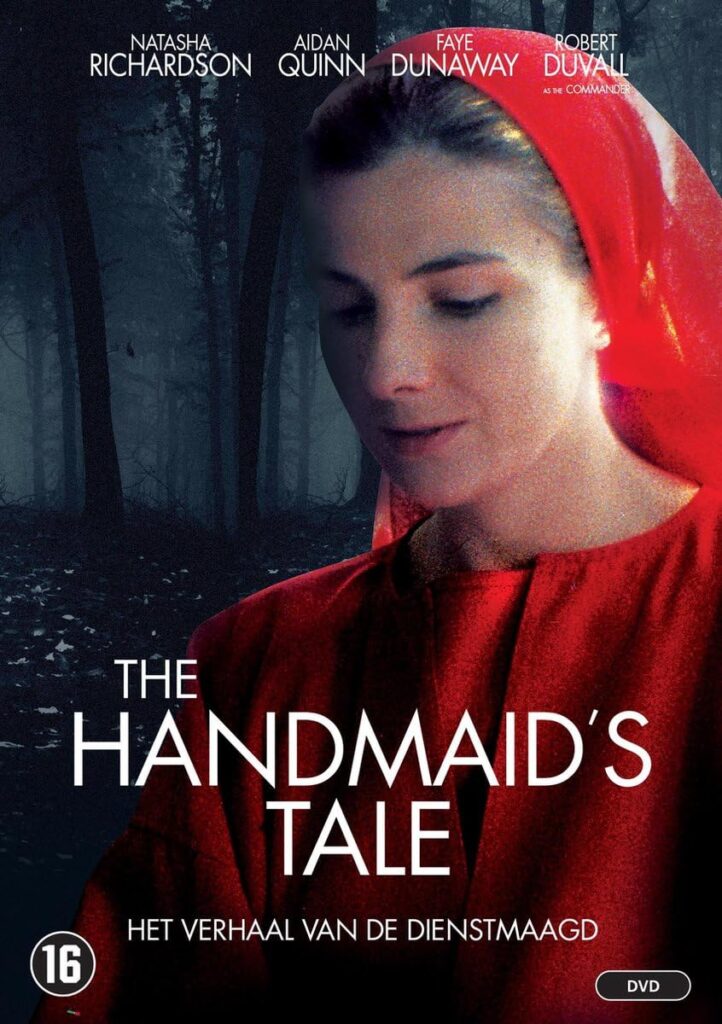
Based on Margaret Atwood’s novel, “The Handmaid’s Tale” takes place in a theocratic society where women’s rights are stripped away, and they are forced into servitude for reproduction. The film explores themes of religious extremism, gender oppression, and the loss of autonomy in a patriarchal society. As women’s rights continue to be challenged in many parts of the world and the threat of authoritarianism grows, “The Handmaid’s Tale” feels more relevant than ever. The film’s depiction of a society where women are reduced to their reproductive function serves as a stark warning about the dangers of religious fundamentalism and the erosion of personal freedoms.
The film also highlights the power of resistance and the struggle for freedom in an oppressive regime. The protagonist, Offred, symbolizes the courage to defy a system that seeks to control every aspect of a person’s life. In a time when reproductive rights, gender equality, and personal freedoms are under threat in various parts of the world, “The Handmaid’s Tale” is a chilling reminder of the importance of safeguarding these rights. The film’s portrayal of a society where women are forced into submission resonates with ongoing struggles for gender equality and the fight against authoritarianism.
A Clockwork Orange (1971)
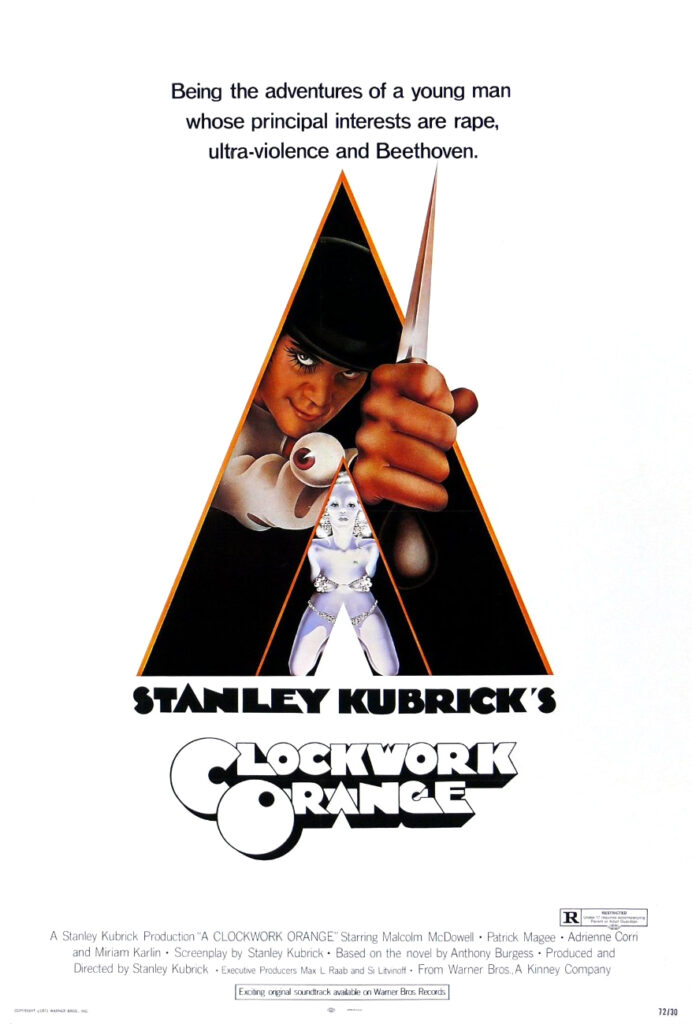
Stanley Kubrick’s adaptation of Anthony Burgess’s novel “A Clockwork Orange” imagines a future where juvenile delinquency is rampant, and the state responds with violent reconditioning techniques. The film explores themes of free will, government control, and the moral consequences of using force to maintain order. With growing concerns over the criminal justice system, police brutality, and the loss of personal freedoms in the face of security measures, “A Clockwork Orange” raises uncomfortable questions about the extent to which governments can intervene in individuals’ lives. The film’s portrayal of state-sanctioned violence and the manipulation of behavior serves as a critique of authoritarian methods used to suppress dissent and enforce conformity.
The film also delves into the psychological effects of living in an oppressive, highly controlled society. The protagonist, Alex, is subjected to a treatment that removes his ability to choose between good and evil, making him a tool of the state rather than an individual with free will. This loss of autonomy echoes concerns about the rise of surveillance, data manipulation, and the erosion of personal freedoms in the digital age. In a world where governments are increasingly relying on surveillance technologies to monitor behavior, “A Clockwork Orange” offers a disturbing vision of a future where personal agency is stripped away in the name of control.
This article originally appeared on Avocadu.
